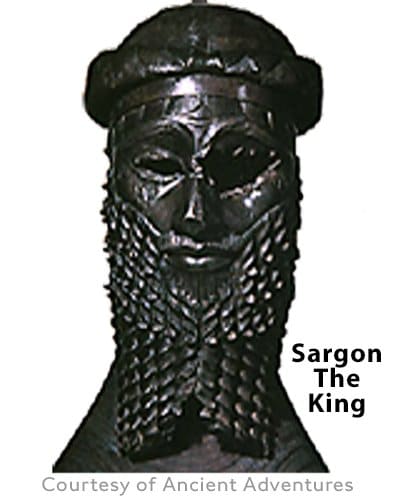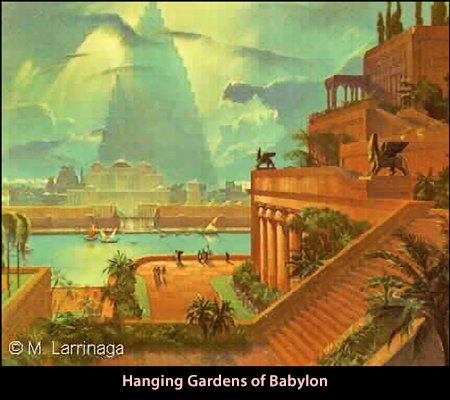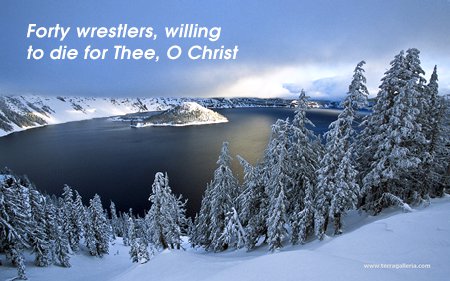Nebuchadnezzar created an image of gold for his leaders to worship. It was located south of Babylon along the Dura River. It must have been awesome – being all gold and standing higher than a seven floor building. This image of gold was tall and narrow – maybe as narrow as the shoulders of a statue of a former king, Sargon. God had told Nebuchadnezzar, through Daniel, that He was king of kings and superior to all future kingdoms. After years of thinking about these “praises,” the king reacted as many of us do. He confused God’s work with his own. He took credit for what God had done. It is easy to believe we are the cause of success. The statue symbolized Nebuchadnezzar’s accomplishments. When the statue was finished, he gave an order for his leaders to come and worship. He planned the “worship music” with wonderful instruments and required all to worship. Refusal was to reject the king!
The “Wise Men”
Shadrach, Meshach and Abed-nego did not join in the worship. Their enemies noticed and did not miss this opportunity to completely remove them.
For this reason at that time certain Chaldeans came forward and brought charges against the Jews. Daniel 3:8 (NASB)
We do not know who their enemies were for they visited the king secretly and brought charges against the three men, calling them Jews. It appears they were afraid the king might reject their plan and then Daniel or his powerful friends might punish them if they failed. The Hebrew words for “brought charges” means “to devour in pieces.” It describes their slanderous passion – their hatred. So they came in secret, concerned only for themselves. They began by praising the king.
They responded and said to Nebuchadnezzar the king: “O king, live forever!” Daniel 3:9 (NASB)
Now for the next phase of the plan! They needed to remind the king of his decree and see if he was serious.

You yourself, O king, have made a decree that every man who hears the sound of the horn, flute, lyre, trigon, psaltery, and bagpipe, and all kinds of music, is to fall down and worship the golden image. But whoever does not fall down and worship shall be cast into the midst of a furnace of blazing fire. Daniel 3:10-11 (NASB)
At this point the king must have sensed there was a problem. The trap was set. Now they only needed to inflame the king’s emotions and let the trap fall.
There are certain Jews whom you have appointed over the administration of the province of Babylon, namely Shadrach, Meshach and Abed-nego. These men, O king, have disregarded you; they do not serve your gods or worship the golden image which you have set up. Daniel 3:12 (NASB)
Again we hear the word “Jews.” These are words of hatred – hatred because these Jewish men had been promoted to high positions (see Daniel 2:49) over them. Daniel’s friends must have known of their hatred. Did they hear about their enemies during the fourteen years since their promotion? Did they hear it from someone when they had lunch at the ziggurat, near one of the seven wonders of the ancient world – the Hanging Gardens, or as they walked along the Processional? We do not know, but it is hard to believe their enemies’ anger was a secret.
Their accusation was simple – they “have disregarded you.” The Hebrew says they “are ALWAYS ignoring you.” They implied the three Hebrews had an attitude problem towards the king. This was the key charge and the proof was that they refused to worship the statue. They made the insult worse when they added to the king’s command and said the Jews did not serve his gods. How would you feel if you had been insulted and rejected?
I Am Angry
The king’s emotions gripped him and he demanded to see the three men.
Then Nebuchadnezzar in rage and anger gave orders to bring Shadrach, Meshach and Abed-nego; then these men were brought before the king. Daniel 3:13 (NASB)
The Hebrew is vivid saying that he was demanding and demanding that the three men be brought to him. He was emotional, impatient and insistent. The wise men had succeeded!
Nebuchadnezzar . . . said to them, “Is it true, Shadrach, Meshach and Abed-nego, that you do not serve my gods or worship the golden image that I have set up?” Daniel 3:14 (NASB)
When the men arrived, the king asked the key question. Did they disobey his decree and were they refusing to serve his gods? This last accusation was the wise men’s addition.
Emptiness
Worship and service! Is it not amazing that every religion has these two things in common – worship and service. It does not matter if it is Buddhism, Hindusim, Islam, Jainism, Judaism, Sikhism, or some other religion: worship and service are always there. Some years ago, a pastor in Texas said that a woman came to him and asked if she could teach Sunday School. She went on to explain that she was struggling spiritually and needed to serve in the church to help. The pastor remarked, “We have really slipped if the qualification for service is a poor spiritual relationship with God.” Worship and service – two things most religious people want to do. Nebuchadnezzar did not ask, “Do you have a personal relationship with God?” “Do you love God?” That is unique to Christianity. In most religions, god is impersonal and distant. But Jesus wants a friendship (John 15:14). Nebuchadnezzar was satisfied with ritual and ceremony! One can be happy with just ritual and ceremony. Do you see prayer as speaking to a Friend, reading the Bible as listening to Him, confessing your sins as making your relationship right, or ask the Holy Spirit to empower your life? Worship and service were good enough for the king.

Now You Will Pay
Now the king’s question.
Now if you are ready, at the moment you hear the sound of the horn, flute, lyre, trigon, psaltery, and bagpipe, and all kinds of music, to fall down and worship the image that I have made, very well. But if you will not worship, you will immediately be cast into the midst of a furnace of blazing fire; and what god is there who can deliver you out of my hands? Daniel 3:15 (NASB)
Are you ready to worship? Bow or burn?
Shadrach, Meshach and Abed-nego answered and said to the king, “O Nebuchadnezzar, we do not need to give you an answer concerning this matter. If it be so, our God whom we serve is able to deliver us from the furnace of blazing fire; and He will deliver us out of your hand, O king. But even if He does not, let it be known to you, O king, that we are not going to serve your gods or worship the golden image that you have set up.” Daniel 3:16-18 (NASB)
Shadrach, Meshach and Abed-nego are great examples of faith. They did not doubt that God could rescue them; but if He decided not to, they were prepared to die for Him. Great faith is faith that is willing to die. Weak faith doubts God when it must suffer. This is the message of James 1:6-8.
But let him ask in faith without any doubting, for the one who doubts is like the surf of the sea driven and tossed by the wind. For let not that man expect that he will receive anything from the Lord, being a double-minded man, unstable in all his ways. James 1:6-8 (NASB)
Great faith is believing that God can answer our prayers. James 4:14-17 reminds us that it is a sin to assume that God will do what we want. We are to say, “Lord willing.” That is what these men did. We find later that even this pagan king knew they had great faith (v. 28).
Great Faith
The early Christians cartooned images of Shadrach, Meshach and Abed-nego in the catacombs beneath Rome. They were examples of faithful men who loved God so much they were not willing to compromise to save their lives. The test of great faith is not wealth and luxury – it is a willingness to suffer for God.
Then Nebuchadnezzar was filled with wrath, and his facial expression was altered toward Shadrach, Meshach and Abed-nego. He answered by giving orders to heat the furnace seven times more than it was usually heated. And he commanded certain valiant warriors who were in his army to tie up Shadrach, Meshach and Abed-nego, in order to cast them into the furnace of blazing fire. Then these men were tied up in their trousers, their coats, their caps and their other clothes, and were cast into the midst of the furnace of blazing fire. For this reason, because the king’s command was urgent and the furnace had been made extremely hot, the flame of the fire slew those men who carried up Shadrach, Meshach and Abed-nego. But these three men, Shadrach, Meshach and Abed-nego, fell into the midst of the furnace of blazing fire still tied up. Daniel 3:19-23 (NASB)
The king was so angry that he ordered them thrown into a furnace – a kiln – for firing pottery. Huge furnaces have been found in Babylon. It has been estimated that fifteen million bricks were fired in these furnaces to complete construction work. The furnaces had an opening at the top and below. These three men were going to be tossed in from above and fall to the bottom. The king commanded that additional materials be tossed into the furnace to heat it up. An ancient writer says that additional naptha, tow, and pitch were added to make the fire hotter.
Rescued
How would we have felt at the moment we had fallen into the furnace? If any of us were Shadrach, Meshach and Abed-nego, we would have realized something unusual very quickly. No heat, no pain, and God’s angel.
Then Nebuchadnezzar the king was astounded and stood up in haste; he responded and said to his high officials, “Was it not three men we cast bound into the midst of the fire?” They answered and said to the king, “Certainly, O king.” He answered and said, “Look! I see four men loosed and walking about in the midst of the fire without harm, and the appearance of the fourth is like a son of the gods!” Then Nebuchadnezzar came near to the door of the furnace of blazing fire; he responded and said, “Shadrach, Meshach and Abed-nego, come out, you servants of the Most High God, and come here!” Then Shadrach, Meshach and Abed-nego came out of the midst of the fire. And the satraps, the prefects, the governors and the king’s high officials gathered around and saw in regard to these men that the fire had no effect on the bodies of these men nor was the hair of their head singed, nor were their trousers damaged, nor had the smell of fire even come upon them. Daniel 3:24-27 (NASB)
Nebuchadnezzar had not expected this. But he immediately realized a god had to have done this. He knew the answer – the God of Daniel and his friends.
Nebuchadnezzar responded and said, “Blessed be the God of Shadrach, Meshach and Abed-nego, who has sent His angel and delivered His servants who put their trust in Him, violating the king’s command, and yielded up their bodies so as not to serve or worship any god except their own God. Daniel 3:28 (NASB)
Willing To Die
The king knew what was important to these men. It was not their comfort or their life. They “yielded up their bodies.” Many of the early Christians yielded up their lives too! History says they were accused of being anti-social, cannibals (because they practiced communion), and not Caesar worshippers. One writer ridiculed them for worshipping a man, Jesus, as a god. Recently, several United States government officials accused Christians of being intolerant and a threat to the country. But this is not unusual.
During A.D. 250 Christians were ordered to worship a deity other than the Christian God and to purchase certificates proving they had. The certificates had to be shown to a government official to save their lives. Tertullian, an early church father, complained that whole churches bribed government officials to avoid death. Those who did these things were called Lapsi. They had “lapsed” in their faith.
Later another Caesar ordered Christians to burn their Bibles. Those who did were called traditores. Today we use the word “traitors.” Many Christians have not been willing to die or suffer for Jesus. They have been self-centered. They have cared more for themselves than for the God they claimed to love.
Conclusion
Today, some play secret Christian. Is this not another form of being a “Lapsi” or a “traditore”?

In the days of the Roman Emperor Nero, there were a band of soldiers known as the “Emperor’s Wrestlers.” They were picked from the best and the bravest, and recruited from the great athletes of the Roman amphitheater. In the great amphitheater they would hold up the arms of the emperor against all challengers. Before each contest they stood before the emperor’s throne and cried: “We, the wrestlers, wrestling for thee, O Emperor, to win for thee the victory and from thee, the victor’s crown.”
When the great Roman army was sent to fight in far away Gaul, no soldiers were braver or more loyal than this band of wrestlers led by their centurion Vespasian. But news reached Nero that many Roman soldiers had accepted the Christian faith. Therefore, this decree was dispatched to the centurion Vespasian: “If there be any among your soldiers who cling to the faith of the Christian, they must die!” This decree was received in the dead of winter. The soldiers were camped on the shore of a frozen inland lake. It was with sinking heart that Vespasian, the centurion, read the emperor’s message. Vespasian called the soldiers together and asked the question: “Are there any among you who cling to the faith of the Christian? If so, let him step forward!” Forty wrestlers instantly stepped forward two paces, respectfully saluted, and stood at attention. Vespasian paused. He had not expected so many, nor such select ones. “Until sundown I shall await your answer,” said Vespasian. Sundown came. Again the question was asked.
Again the forty wrestlers stepped forward. Vespasian pleaded with them long and earnestly without prevailing upon a single man to deny his Lord. Finally he said, “The decree of the emperor must be obeyed, but I am not willing that your comrades should shed your blood. I am going to order that you march out upon the lake of ice, and I shall leave you there to the mercy of the elements.” The forty wrestlers were stripped and then, falling into columns of four, marched toward the center of the lake of ice. As they marched they broke into the chant of the arena: “Forty wrestlers, wrestling for Thee, O Christ, to win for Thee the victory and from Thee, the victor’s crown!”
Through the long hours of the night, Vespasian stood by his campfire and watched. As he waited through the long night, there came to him fainter and fainter the wrestlers’ song. As morning drew near one figure, overcome by exposure, crept quietly toward the fire; in the extremity of his suffering he had renounced his Lord. Faintly but clearly from the darkness came the song: “Thirty-nine wrestlers, wrestling for Thee, O Christ, to win for Thee the victory and from Thee the victor’s crown!” Vespasian looked at the figure drawing close to the fire. Perhaps he saw eternal light shining there toward the center of the lake. Who can say? But off came his helmet and clothing, and he sprang upon the ice, crying, “Forty wrestlers, wrestling for Thee, O Christ, to win for Thee the victory and from Thee, the victor’s crown.” -Paul Tassel
Jesus calls us to faithfulness – a willingness to suffer for Him!
Suggested Links:
Book of Danielhttps://www.neverthirsty.org/bible-studies/book-of-daniel/
https://www.neverthirsty.org/bible-studies/book-of-daniel/